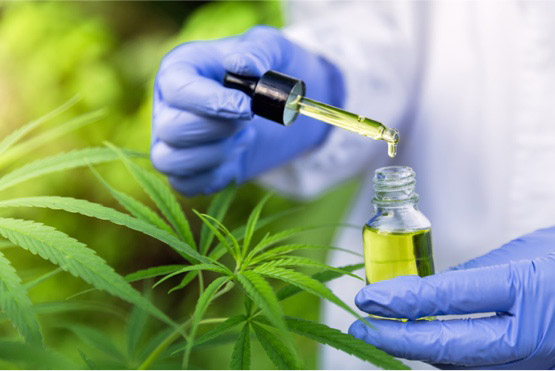
How the DEA’s Definitive guidance impacts our policies at West Town Payments, and what it means for your hemp business merchant services.
Is synthetic THC acetate ester, or THC-O, that appears in certain Delta 8 and Delta 9 products protected by the 2018 Farm Bill like other hemp products?
That question has been on the minds of business owners and their partners alike as the substance has grown in popularity and more brands contemplate if and how they should include THC-O in their product mix. Celebrated cannabis lawyer and partner of West Town Payments, Rod Kight, recently reached out to the DEA for clarification on the control status of hemp-derived THC-O acetate.
The DEA’s answer provided much-needed clarity for those seeking guidance regarding how to approach THC-O as a business and implied significant change for the future of THC-O’s place in the hemp industry.
What is THC-O, and Why Was it Under Scrutiny?
The THC acetate ester, or THC-O, that can appear in Delta 8 and Delta 9 is a potent substance created in a laboratory from a starter cannabinoid and modified by adding an acetyl group to the molecule. The substance has psycho-active effects likened to, if not stronger than, those produced by THC.
The important quality to know about THC-O is that it’s a synthetic substance. Meaning, the substance is not naturally found or derived from a hemp or cannabis plant. They may be the same at a chemical level, but THC is naturally present in a plant and a laboratory is needed to create THC-O. This synthetic quality is the key distinction for regulators to classify it as a controlled substance and was cited as the basis for their decision to regulate it as such.
The Latest from the DEA: THC-O is Not Protected by the 2018 Farm Bill as a Hemp Product
It’s been unclear whether THC-O is protected as other hemp derivates are under the 2018 Farm Bill. Until now. In their response to Mr. Kight’s letter, the DEA clarified their stance on THC-O in the marketplace. By their standards, THC-O is a controlled substance.
This classification makes it clear: this substance is not to be protected the same way other hemp-derived products are.
The DEA’s distinction gives much-needed clarity to the discussion around THC-O. With this classification, there is no gray area left to debate how to legally handle services for the substance. There is no remaining argument that the Farm Bill protections are applicable. Protected hemp business activities are officially separate from business activities related to the selling or purchasing of products containing THC-O.
What this Means for Hemp Clients at West Town Payments
Our response to the DEA’s statement is straightforward: now that the law is clear, it is a clear decision for our company to not offer merchant services to THC-O affiliated businesses.
Regulatory compliance is a top priority for West Town Payments and our customers. We take great care to further define and elaborate on our policies with the most up-to-date information and legislative prudence possible. It is our job and responsibility as a partner to the industry to continue shaping our policies to protect our clients and their business interests in an evolving industry.
Because the DEA offers clear guidance on THC-O we will follow suit and offer similarly clear guidance to our customers. We will not be providing merchant services to any merchant marketing and selling products that contain THC-O. We advise any clients researching it for their product mix to also understand the implications that it could have on their otherwise fully compliant business: Adding THC-O products will jeopardize your relationship with West Town Payments and the validity of your hemp business.
Our decision to exempt THC-O related products from our services is one that we believe will be in the best interest of all our hemp clients and the security of legal hemp business activities as legislation continues to protect hemp and hemp by-products more clearly.
What Comes Next for the Hemp Industry
The introduction of lab-created cannabinoids containing THC-O to the marketplace created challenges for lawmakers, business owners, consumers, and industry partners alike. Not technically Cannabis, and not quite hemp, THC-O seemed to be an attempt at selling through a ‘legal loophole’ while the cannabis industry pushes for clearer and more extensive protections of products containing naturally derived THC.
However, the lack of transparency threatens the validity of both industries.
By addressing THC-O as a controlled substance, the DEA provides at least some direction for moving forward toward a future where it is made clear what hemp related business owners should do to protect the well-being of their businesses, their partnerships, and their customers.
About West Town Payments
At West Town Payments we are proud to offer cutting-edge, comprehensive digital payment products and services to the parking industry. Using a highly secure, comprehensive payments platform that integrates with any equipment vendor or software platform, we enable parking providers to accept contactless and mobile payments. With almost two decades of experience in the parking industry we tailor our payments products to the unique needs of the parking industry, creating a seamless payment experience for both you and your customers.
